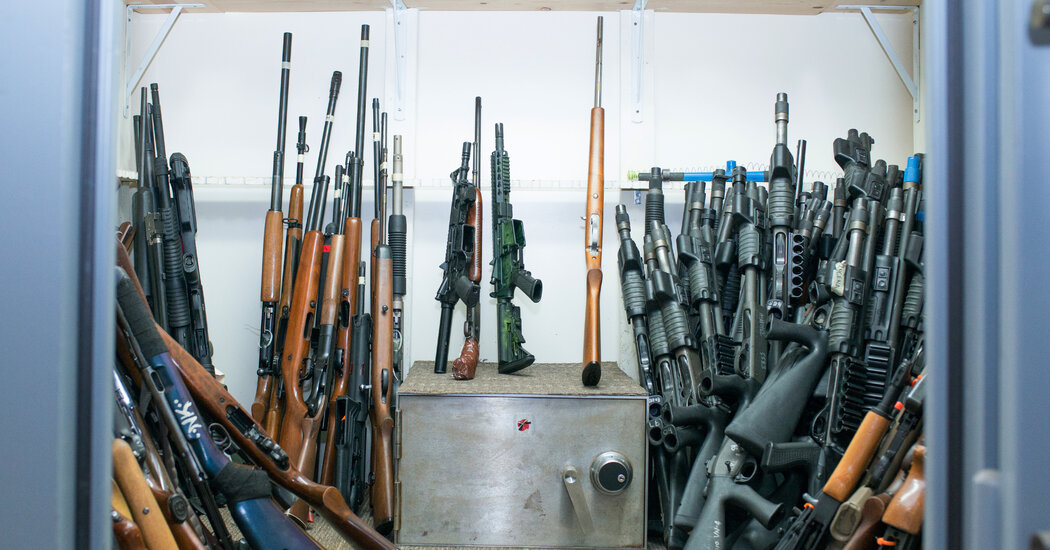Communities across the U.S. are fueling a secondary arms market by giving seized and surrendered guns to disposal services that destroy one part and resell the rest.
When Flint, Mich., announced in September that 68 assault weapons collected in a gun buyback would be incinerated, the city cited its policy of never reselling firearms.
“Gun violence continues to cause enormous grief and trauma,” said Mayor Sheldon Neeley. “I will not allow our city government to profit from our community’s pain by reselling weapons that can be turned against Flint residents.”
But Flint’s guns were not going to be melted down. Instead, they made their way to a private company that has collected millions of dollars taking firearms from police agencies, destroying a single piece of each weapon stamped with the serial number and selling the rest as nearly complete gun kits. Buyers online can easily replace what’s missing and reconstitute the weapon.
Hundreds of towns and cities have turned to a growing industry that offers to destroy guns used in crimes, surrendered in buybacks or replaced by police force upgrades. But these communities are in fact fueling a secondary arms market, where weapons slated for destruction are recycled into civilian hands, often with no background check required, according to interviews and a review of gun disposal contracts, patent records and online listings for firearms parts.



(Not sure if my other comment got deleted successfully or not, so posting this next to it)
Sorry, I reacted to your second sentence without reading the rest. (I am Australian, I was a bit offended by reading “Australia had mandatory confiscation of ALL guns basically”)
In Australia the gun buybacks were followed by decreases in gun violence. It’s debated whether that was because of the gun buybacks or other policies, it’s hard to be certain without two identical countries and A-B testing. Nonetheless: anything that makes guns and gun parts less available is likely to help and doesn’t seem to have much in the way of disadvantages other than money. These days it’s mostly through gun amnesties (not buybacks) so that problem is avoided.